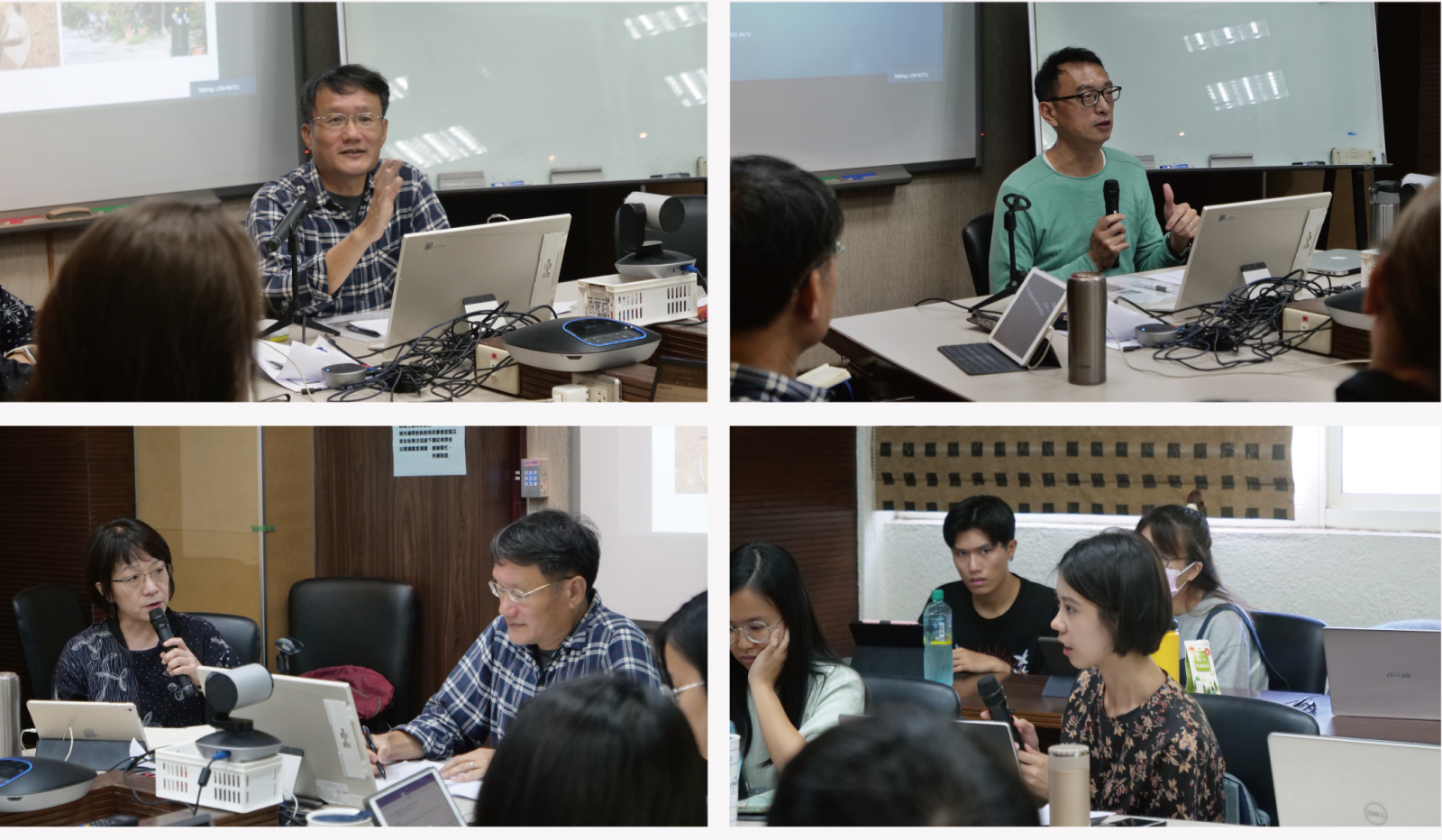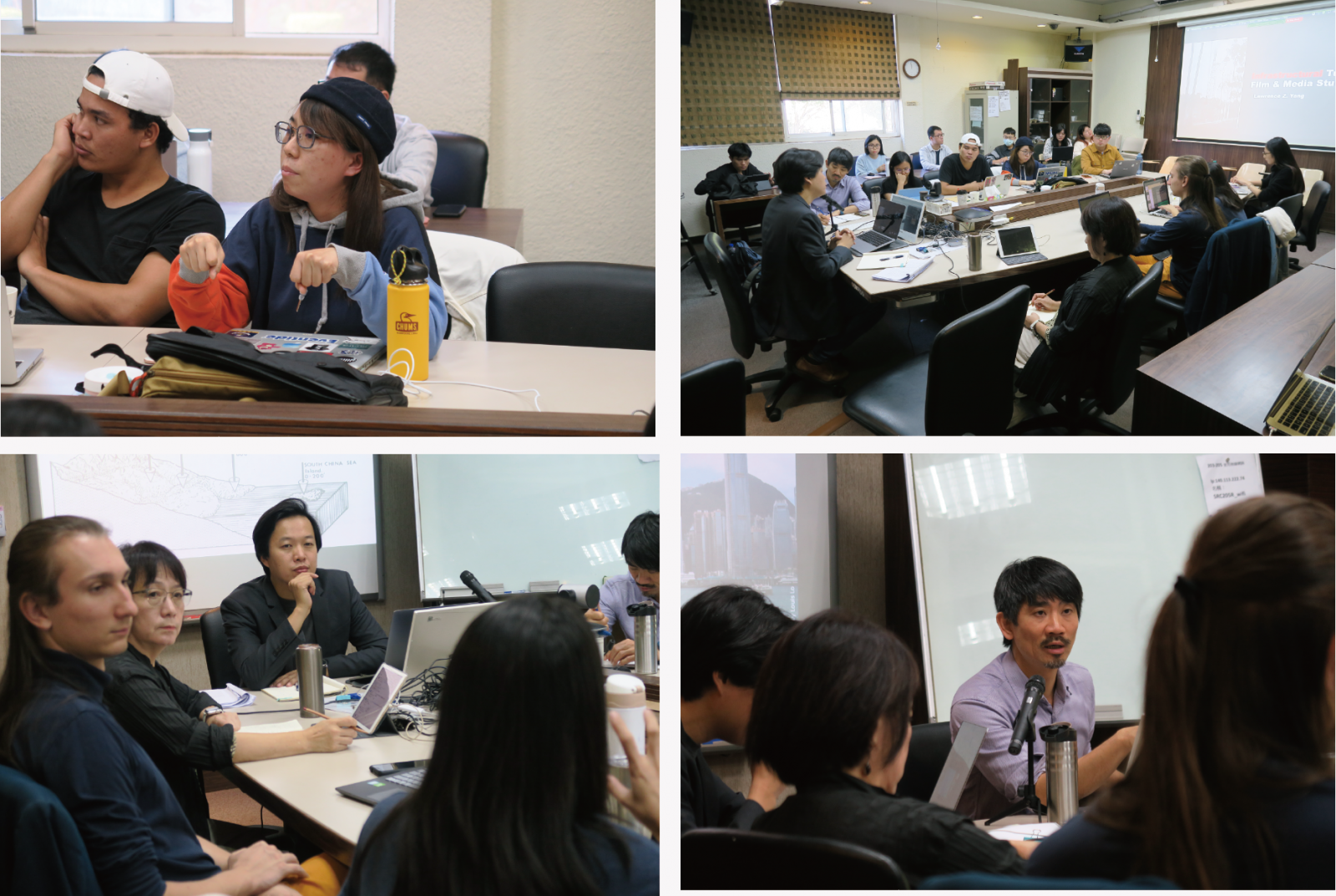

側記:2020 秋台聯大亞際文化研究演講系列 PART I
2021-03-16
01. 如何進行亞際社會的社會運動與地方研究連帶?
01. How to conduct social movement and local networking in the Inter-Asian context?
Date: 2020/11/24
【Lecturer 1】
講者:莊雅仲教授 Prof. Ya-Chung Chuang
講題:民主圍城: 21世紀台灣的社會運動與都市政治
Topic: Democracy under Siege : Social Movements and Urban Politics in 21st Century Taiwan
×文字記錄:江紫爍(Cyris) /陽交大社會與文化研究所碩士生
【Lecturer 2】
講者:魏玓教授 Prof. Ti Wei
講題:從媒體危機到知行危機: 台灣媒體亂象、媒改運動與傳播研究的反思
Topic: From media crisis to intellectual crisis: A reflection on the media disorder, media reform movement and the communication studies in Taiwan
×文字記錄:胡麗蕊(Justina) /陽交大亞際學程碩士生

From this week, we were going to have a series of lectures about the research presented by different ICAS partner scholars. In these five lectures, we touched on a number of issues which the academic world is currently discussing. Each lecture would have a head topic, for example, how to conduct social movement and local networking in the Inter-Asian context, how to explore cinematic studies in Inter-Asian societies, how to envision the feminist social engineering imaginaries, how to understand the politics of memory in Taiwan, China and Beyond and the last one is forum about five young scholars on their research projects of Inter-Asian Cultural Studies, to tiled up the academic reseaches in this semester.
Ya-Chung Chuang, our first presenter, was introducing his continued work titled “Democracy under Siege : Social Movements and Urban Politics in 21st Century Taiwan” based on his published book “Democracy on Trial: Social Movements and Cultural Politics in Postauthoritarian Taiwan”, to start the conversation between academic and the ongoing society, by observing how different parties holding and using their stocks of democracy.
He examined different chapters of his book and explained them one by one. Taking the case of both the social movement community and local community, he got involved in environmental movements and community conservation, to observe how the organization built up, especially for the minor community. He focused on the local practices in the daily lives and the identity politics beyond, to find out how the people connect with them and show the Taiwan unique dynamic and diversity after the lifting of martial law.
Professor Chuang, now is still doing research about how the social movement reacts to public spaces. According to his treasurable records, we could figure out how the society keeps reshaping and practicing on the different tracks to resolve the conflicts after the starting of democracy.
For the second speaker of the first week of this lecture series, we had Professor Ti Wei from the Department of Communication and Technology at NYCU. In Professor Wei’s topic on ‘From Media Crisis to Intellectual Crisis: A Reflection On the Media Disorder, Media Reform Movement and the Communication Studies in Taiwan’, similar to Professor Chuang, he also elicited a formation of social movements in Taiwan but with an investigation in a different discipline.
With Professor Wei’s long-time research on media and communication, he asserted to seek a methodology and theoretical framework correlated with the early media reform movement (媒體改革) in Taiwan, which enabled him a historical review on media disorder (媒體亂象), and consequently, re-thinking and making dialogues with Taiwan’s contemporary media landscape. He first went through a brief introduction of Taiwan’s early media reform movement: media landscape in 1980s’ was overly dramatic and commercialized by virtue of neoliberalism, a growing need to publicize media was then set off and eventually started a media reform movement. Wei argued the existing discourses on media disorder as a social “consensus” were in fact constructed by a pair of “conceptual glasses” of “ideal media”, and transplanted theoretical frameworks that were suited to the West into Taiwan’s context. By employing critical discourse analysis (CDA) in his former research as the research approach, Wei re-examined the formation of such “consensus” to attempt a breakthrough for the current dilemma in media discourses. That led him to two complementary or alternative approaches to reconstruct his current search: (1) a re-examination of the origin of “consensus” and media disorder (2) a study of media (the “ordinary” and “non-elite” as Wei put it, or vernacular in my opinion) audience.
Wei further elaborated findings from his research with two research clusters. In the first cluster, he reassessed media disorder in Taiwan in the era of liberalization by questioning the origin of terminology. The term “media disorder” has been created and widely used since the late 1990s’. Many commentators and researchers had agreed the origin of such disorder was mainly a consequence of neo-liberalism or market-driven journalism. However, Wei pointed out such a simplistic application of an explanatory framework of neoliberalism onto Taiwanese society and its people had dumbed down the issues of media in the context of Taiwan. In the second research cluster, he investigated the emergence of vicious cable television and how small companies could be hardly developed into a bigger scale, bringing about an inconsistent yet competitive media environment in the industry.
In the two clusters of Wei’s research, he proposed a few possible solutions. He indicated an organic relationship between Taiwanese media and society had to be established before further discussing de/regulation for media content. De/regulation of media content might not be the most ideal solution as it could in turn delimit freedom of press and of speech. He proposed we could reflect on the policies in Europe for governing media as primary models, for instance, requiring licenses for digital media, imposing taxes on emerging media (Wei suggested it would work even better particularly on transnational media).
02. 如何探索亞際社會出發的電影研究?
02. How to explore cinematic studies in Inter-Asian societies?
Date: 2020/12/01
【Lecturer 1】
講者:勞維俊副教授 Prof. Louis Lo
講題:後九七香港電影: 美學與政治
Topic: Post-1997 Hong Kong Cinema: Aesthetics and Politics
×文字記錄:胡麗蕊(Justina) /陽交大亞際學程碩士生
【Lecturer 2】
講者:楊子樵助理教授 Prof. Lawrence Yang
講題:電影與媒體研究的基礎建設轉向
Topic: The Infrastructural Turn in Film and Media Studies
×文字記錄:江紫爍(Cyris) /陽交大社會與文化研究所碩士生

In this week’s lecture, two speakers were invited to discuss Inter-Asian societies through their explorations in cinema from the perspectives of film theory and logistics respectively. By delineating the aesthetic experiences regarding to cinematic studies and infrastructure, the two lectures proposed questions of post-coloniality in Inter-Asian societies such as Hong Kong, Taiwan and India, it allowed us to rethink how colonial power manifest from visual arts to urban landscape, or vice versa.
Under the topic of “Post-1997 Hong Kong Cinema: Aesthetics and Politics”, our first speaker Professor Louis Lo from the Graduate Institute for Studies in Visual Cultures at National Yang-Ming University focused on affect and memories from the two films he studied – Two Thumbs Up (衝鋒車, 2015, dir. Lau Ho-Leung) and Trivisa (樹大招風, 2016, dir. Jevons Au, Frank Hui, and Vicky Wong). After the handover of Hong Kong in 1997, it is crucial to note that the change in political landscape had as well tightened film productions and industry not only because of political pressure, but also due to the funds from China and market’s expansion in China. Lo took 1997 as the starting point of his research and attempted to illustrate the identity politics of Hong Kong people and their memory of urban landscape by analyzing the two films mentioned above.
From a macro perspective, Lo pointed out the impact of the handover of Hong Kong on cultural space was also under a new politics in global logistics at the time. As many scholars had suggested, Hong Kong’s “floating identity” intertwined with global logistics and its role as one of the most international and biggest ports in the world. Furthermore, Lo employed such “port mentality” to further discuss discontinuity and memory in the living experiences of Hong Kong people. By invoking Ackbar Abbas and Walter Benjamin, Lo analyzed the disappearance of cultural space and the temporality represented in these films respectively as his research approach. The two films he worked on, particularly Two Thumbs Up, suggested memories of locations and infrastructure that were already lost or demolished in today’s Hong Kong. But in reality, these places and buildings still lingered around, as if being ghosted by old images of the past – in Hong Kong, bus stops and routes are named and designed after a certain locations and infrastructures. The imagery of an urban landscape that was long gone are still vivid and omnipresent until this day. In a sense, it is a locality without an actual infrastructure after repeatedly named and used in the routes of public transport. Interestingly, such memory and “past” became themes and elements for some Hong Kong films. In Two Thumbs Up, the notion of red van (a public transport in Hong Kong) acted as a device/vehicle for travel in time and cultural space. Lo quoted Benjamin’s idea of homogenous time from On the Concept of History to denote a homogenous locality and temporality represented in Hong Kong cinema. What complicated Lo’s analysis was his attention to affect from these films. He stated that the notion of “unintentional plagiarism” (撞橋 in Cantonese) in the storyline, script and editing suggested the director intended to recycle or recontextualize affect from cultural memories and elements of Hong Kong film classics.
Professor Lawrence Yang, in his presentation titled “The Infrastructural Turn in Film and Media Studies”, focused on a border ecology of media, was including the discussion of different kinds of audience and medium objects. It is based on the studies of infrastructure, which is explaining the relation systemically connected things, the linkage of the individual and the city, and the invisible mechanism behind.
Professor mentioned that it is important to consider what the basic element takes part in: what kind of subjectivity is involved in this question and what is the subject and technology. In this case, he analysed how much the colonies were affected by the colonial period on their senses or feelings. Those infrastructures of modernism shaped the daily practices and the protocol in the places.
In this presentation, he was perspicaciously examined by multiple cases studies. The first case is about Manila, based on Jasmine Nadua Trice’s research, on the topic of colonial Manila’s film culture. He explained how the theatre system and cinematic space built during the colonial period, to show the control functions as infrastructure.
The second case is about how infrastructures as the resources and communication systems in India. By observing the Bollywood movies, he found that mobile phones always act as the object as a pusher or trigger. There are also numbers of embedded advertising on Wi-FI, data plan and cell phone, kind of becoming part of the Bollywood style. In this case, the holding of a phone always represents the holding of power, especially in gender division and class.
The third case is about Taiwan, how the colonial time to give a new colour of the modernity to new Taipei, and create the “colonial good taste”, for examples, the porcelain insulator of tycoon’s buildings, the white tiles of the building, the whiteness of the infrastructures in Dadaocheng.
The fourth case is discussing a more complex infrastructure revealed on mass media, which is based on the background of air transport in 1949 Hong Kong, the story of CNAC and CATC. In this case, the military logistics was mediated through pictures, melodrama, films and performed their platformativity in that new time, for example, Our Dream Car. An air hostess was serving in the infrastructure, shaped the ideal body for the cold war and showed connectivity with gender. The context of professional, means the control of time and body, the sense of identity, which is eventually revealed by protocol and dress code.
His presentation examined how affects, such as the reading media, cinema and platforms converted to the shape of political economy under neoliberalism and capitalism.
近期新聞 Recent News


